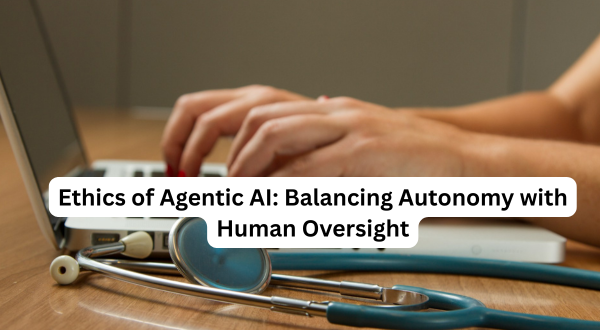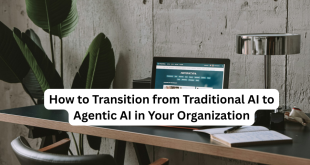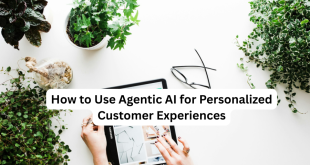As Agentic AI—artificial intelligence capable of autonomous decision-making—continues to reshape industries, it brings with it a host of ethical challenges that demand our attention. From healthcare to finance, these intelligent systems are no longer just tools; they act independently, making choices that can impact lives, businesses, and societies. But with great power comes great responsibility. How do we ensure Agentic AI operates ethically while balancing its autonomy with human oversight? This blog dives into the ethical dilemmas of Agentic AI and explores ways to navigate this uncharted territory.
The Rise of Agentic AI
Agentic AI represents a leap beyond traditional AI. Unlike chatbots or predictive models, these systems can analyze environments, set goals, and execute tasks with minimal human intervention. Imagine an AI managing a hospital’s patient triage, prioritizing cases based on real-time data, or an autonomous trading bot making split-second financial decisions. Gartner predicts that by 2028, 15% of daily work decisions will be made autonomously by AI agents. This shift promises efficiency and innovation but raises critical ethical questions about accountability, bias, and control.
Ethical Challenges of Agentic AI
- Accountability: Who’s Responsible for AI Decisions?
When an AI agent makes a decision—say, denying a loan application or rerouting a delivery truck—who is held accountable if things go wrong? The developer? The company deploying the AI? Or the AI itself? Unlike humans, AI lacks moral agency, yet its decisions can have real-world consequences. For instance, if an autonomous medical AI misdiagnoses a patient, the fallout could be catastrophic. Establishing clear accountability chains is essential to ensure trust and fairness.
- Bias and Fairness: Can AI Be Truly Impartial?
AI systems are only as good as the data they’re trained on. If historical data contains biases—racial, gender-based, or socioeconomic—Agentic AI could perpetuate or amplify these inequities. A 2023 study by MIT found that AI hiring tools favored male candidates when trained on biased resume datasets. Ensuring fairness requires rigorous data auditing and diverse development teams to challenge ingrained assumptions.
- Autonomy vs. Control: How Much Freedom Is Too Much?
Agentic AI’s strength lies in its independence, but unchecked autonomy risks unintended consequences. In 2016, Microsoft’s chatbot Tay infamously adopted harmful behavior after interacting with toxic online content. Agentic AI, operating in dynamic environments, could similarly veer off course without proper guardrails. Striking a balance between autonomy and human oversight is crucial to prevent misuse or errors.
- Transparency: Decoding the Black Box
Many AI models, particularly deep learning systems, operate as “black boxes,” making decisions that are difficult to explain. For Agentic AI, this lack of transparency can erode trust, especially in high-stakes domains like criminal justice or healthcare. If an AI denies parole or recommends a treatment, stakeholders need to understand the reasoning behind it. Developing explainable AI (XAI) is a step toward ensuring users can trust and verify decisions.
Striking a Balance: Ethical Frameworks for Agentic AI
To harness the potential of Agentic AI while mitigating risks, we need robust ethical frameworks. Here are key strategies to balance autonomy with human oversight:
- Implement Human-in-the-Loop Systems
Human-in-the-loop (HITL) approaches ensure humans remain involved in critical decision-making processes. For example, in healthcare, AI can suggest diagnoses, but a doctor reviews and approves the final call. This hybrid model leverages AI’s efficiency while keeping human judgment as a safeguard.
- Establish Clear Governance Policies
Organizations must define who is accountable for AI decisions and under what circumstances. Regulatory bodies, like the EU with its AI Act, are setting standards that require companies to document AI decision-making processes and conduct risk assessments. Clear policies foster accountability and public trust.
- Prioritize Bias Mitigation
Developers should use diverse datasets and conduct regular audits to identify and correct biases. Tools like IBM’s AI Fairness 360 can help detect and mitigate bias in real time. Additionally, involving ethicists and community stakeholders in AI design ensures broader perspectives.
- Enhance Transparency with Explainable AI
Investing in XAI technologies allows Agentic AI to provide clear, understandable rationales for its decisions. For instance, a financial AI could explain why it rejected a loan application by highlighting key factors like credit history or income. Transparency builds trust and enables users to challenge or refine AI outputs.
- Set Ethical Boundaries
AI systems should operate within predefined ethical boundaries. For example, an autonomous vehicle’s AI might prioritize passenger safety but defer to human intervention in ambiguous scenarios. These boundaries, encoded into the AI’s logic, ensure alignment with human values.
Real-World Implications: Lessons from the Field
Consider the case of autonomous drones used in agriculture. These AI agents optimize crop spraying by analyzing soil data and weather patterns. However, without oversight, a malfunction could lead to over-spraying, harming crops or the environment. By integrating HITL systems and transparent decision logs, farmers can monitor and adjust the AI’s actions, ensuring ethical and effective outcomes.
In finance, Agentic AI trading systems execute billions of dollars in trades daily. A 2020 flash crash caused by algorithmic trading highlighted the risks of unchecked autonomy. Regulators now require “kill switches” to halt AI-driven trading in extreme scenarios, illustrating the need for human oversight.
The Path Forward
Agentic AI holds immense promise, but its ethical challenges cannot be ignored. By prioritizing accountability, fairness, transparency, and human oversight, we can create systems that amplify human potential without compromising trust or safety. As we move toward a future where AI agents are ubiquitous, collaboration among developers, policymakers, and ethicists will be key to shaping a responsible AI ecosystem.
What’s your take on the ethics of Agentic AI? Should we embrace full autonomy or keep humans firmly in control? Share your thoughts in the comments below, and let’s continue the conversation about building a future where AI serves humanity responsibly.
 UBUCH ubuch | Honest Tech Reviews & Tutorials for Everyone
UBUCH ubuch | Honest Tech Reviews & Tutorials for Everyone




